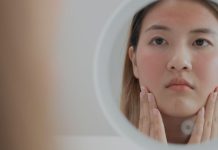Consultation on the proposed licensing system for non-surgical cosmetic procedures is expected to begin at the start of next year, with a further consultation on licensing of premises later in 2023.
The new licensing system prohibiting English practitioners without a license in England from carrying out more invasive non-surgical cosmetic procedures will be introduced in updates to the Health and Care Act 2022.
Updates under Clause (180) of the Act will also prohibit people from using or permitting the use of premises in England “for carrying out of specified cosmetic procedures” unless they have a premises licence.
The scope and details of the proposed new licensing scheme will be determined by Ministers following a period of engagement and public consultation.
Whle the Department of Health and Social Care (DHSC) has not published an exact timeline for the licences, the Joint Council for Cosmetic Procedures (JCCP) said in a statement today (September 29) that “the consultation on which procedures are to be covered by the new licensing scheme is likely to begin in the early New Year”.
The JCCP added that “it is anticipated that a further consultation will then follow on the licensing of premises later in 2023”.
The JCCP is working with partner organisations including the Cosmetic Practice Standards Authority (CPSA), the Chartered Institute of Environmental Health (CIEH) and the British Beauty Council to support the design and promotion of new fair and equitable licensing schemes.
According to the JCCP’s September update, the new licensing scheme is likely to include high street cosmetic treatments which can cause serious harm when not carried out correctly or in a safe environment.
“The scheme must at least cover injectable toxins, dermal fillers, vitamin infusions, platelet-rich plasma replacement therapy, cogs and threads, cyrolipolysis, sclerotherapy, invasive chemical peels, a range of laser and light procedures and hair restoration surgery,” the update continued.
The update also referenced a range of “potentially harmful and unlicensed ‘products’ and devices” being administered as part of several cosmetic procedures. The JCCP is reviewing many of these devices, ‘machines’ and products and is advising the MHRA of the need to introduce rigorous controls regarding their importing, manufacture and supply.
“In recent years we have witnessed a dramatic increase in the number of harmful complications arising from a range of procedures many of which have been the result of sub-standard treatment administered by inappropriately qualified and poorly trained practitioners,” the update continued. “We are also seeing gross misrepresentation of the benefits of treatment, not least on social media and other online platforms. At the heart of the problem is a serious lack of independent information and advice for the public and the simple fact that this is an area that requires regulation.
“We now need to make sure the new licensing schemes fully safeguard people who have invasive cosmetic treatments and that they introduce consistent standards – including hygiene and safety standards for premises – that individuals carrying out non-surgical cosmetic procedures will all have to meet.”
The Government has described this clause in the Health and Care Act as the next step on the road to effective regulation of non-surgical cosmetic procedures (and hair restoration surgery) in England. It follows other recent legislation making it illegal to administer such treatments to under 18s and banning adverts on all forms of media including social media, influencer advertising and traditional advertising for injectable toxin and filler cosmetic procedures which target under 18s.
The update concluded: “We are working tirelessly with the Advertising Standards Authority and contributing to the Government’s ‘Online Safety Bill’ to seek to reduce the number of inaccurate, exaggerated and potentially harmful advertisements on social media postings regarding non-surgical cosmetic procedures and the posting of advertisements that offer education and training to practitioners that do not meet the standards required to equip practitioners with the educational knowledge and competencies to enable to practise safely and proficiently.”
The JCCP has also published a 10-point plan to make the aesthetics sector as safe for patients as possible, including statutory regulation to ensure that only practitioners who meet the required standards for a safe and effective practice can practise legally and national, mandatory education and training standards for all practitioners in these fields.
At Aesthetic Medicine North, JCCP trustee and partner at Regenix Cosmetic Medicine Cosmetic Medicine Andrew Rankin gave a regulation update and commented: “We’re certainly very keen to move forward now with getting everyone licensed and raise that bar for patient’s safety.”






